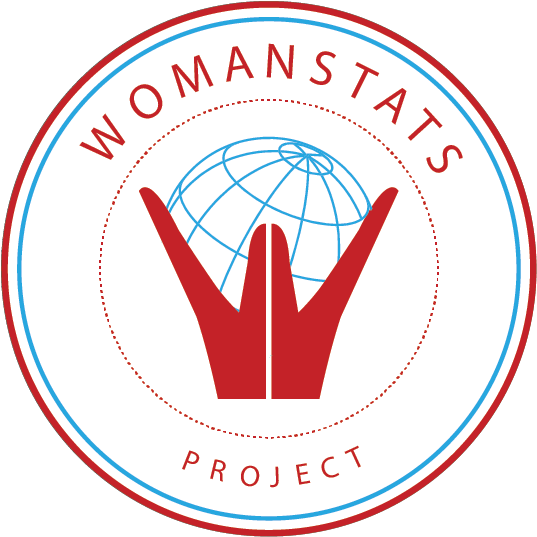

Outgoing Nigerian president Goodluck Jonathon banned female genital mutilation (FGM) on May 5, 2015. FGM, which “which involves removing part or all of a girl’s outer sexual organs,” is a widespread practice in Nigeria – 19.9 million women are thought to have undergone the procedure. FGM can lead to “infertility, maternal death, infections and the loss of sexual pleasure.” While the ban is a significant step toward equality, attitudes and practices need to shift before change to take place.

The Gambia has banned female genital mutilation (FGM) on the grounds that it is not required in Islam. However, there is no clear implementation of the ban, despite President Yahya Jammeh stating that it would be implemented immediately. Surprisingly, support of FGM is most prevalent in the country’s richest communities.

Sierra Leone has banned “visibly pregnant” girls from school. While this has been happening informally for years, the government made the ban official in April. The Minister of Education stated that “innocent girls” could be influenced by their pregnant peers. Students who are thought to be pregnant go through “humiliating” physical examinations carried out by teachers and are ostracized, yet “experts say most underage pregnancies in Sierra Leone are due to rape or sexual exploitation or coercion.”

Men in India are marrying multiple wives (often illegally) as “water wives” during times of drought. These wives fetch water while the first wife takes care of the cooking, cleaning, and the children. The water wives are often widows who regain status in the community by remarrying.

The WomanStats Project database is missing significant amounts of data for the following eleven countries:
| Countries | % of Data Missing |
| Vanuatu | 74.17 |
| South Sudan | 63.06 |
| Kosovo | 46.56 |
| Suriname | 40.56 |
| Guinea-Bissau | 38.89 (tie) |
| Pakistan | 38.89 (tie) |
| Swaziland | 38.61 |
| Solomon Islands | 37.78 |
| Djibouti | 36.94 |
| Luxembourg | 36.39 |

Dalit Women Fight is protesting against caste discrimination in India. More specifically, the sexual assault of women from the Dalit, or untouchable, caste. The NGO is the brainchild of All India Dalit Women’s Rights Forum. Dalit Women Fight’s leaders recently marched across India and toured North America to bring awareness to the issue.

He Named Me Malala is a documentary directed by Davis Guggenheim about the life of Malala Yousafzai, Nobel Peace Prize Laureate, and her journey as an activist for girls’ education. It includes Malala’s survival of the Taliban’s attempted assassination, her recovery, and her increased involvement in ensuring girls’ rights to obtaining an education through her speech to the United Nations and her founding of the Malala Fund. The documentary gives an inside look at Malala’s life while paying tribute to her many efforts in fighting for equality.

Lieutenant General David Morrison, a retired Australian Chief of Army, was named Australian of the Year for 2016. Morrison created a viral YouTube video in 2013, in which he condemn sexism and sexual harassment in the military. He told soldiers and army personnel to show respect for women in the service or “get out.” Morrison continues to advocate for gender equality.

Malawian Senior Chief Inkosi Kachindamoto took it upon herself to annul 330 child marriages, encouraging the girls to continue their education instead of getting married. In April, the Malawian president banned child marriage and set the minimum age for marriage at 18. In 2012, half of all girls in Malawi were married before the age of 18.

The women of Sheroes’ Hangout in Agra, India have something in common: they are all acid attack survivors. After discovering the Facebook campaign “Stop Acid Attacks,” the five women met and decided to open a café to combat stereotypes of survivors and to “move [their] lives forward.” It is estimated that nearly 1,000 acid attacks are carried out each year in India, and the women of Sheroes’ Hangout are turning their traumatic experiences into an outlet to talk about the issue.

Horrific acts of sexual violence and mass rape are being committed against women and girls living in IS-occupied Iraq and Syria. The UN estimates that over 2,500 women and girls have been abducted and sold into sex slavery by the Islamic State. These girls are then being sold for “as little as a pack of cigarettes” and as much as US$2,000. The Islamic State’s implementation of systematic rape is believed by some to be a method of attracting more young foreign fighters to their cause. One Yazidi escapee stated: “From nine thirty in the morning, men would come to buy girls to rape them. I saw in front of my eyes ISIS soldiers pulling hair, beating girls, and slamming the heads of anyone who resisted. They were like animals . . . once they took the girls out, they would rape them and bring them back to exchange for new girls. The girls’ ages ranged from eight to thirty years . . . only twenty girls remained in the end.”